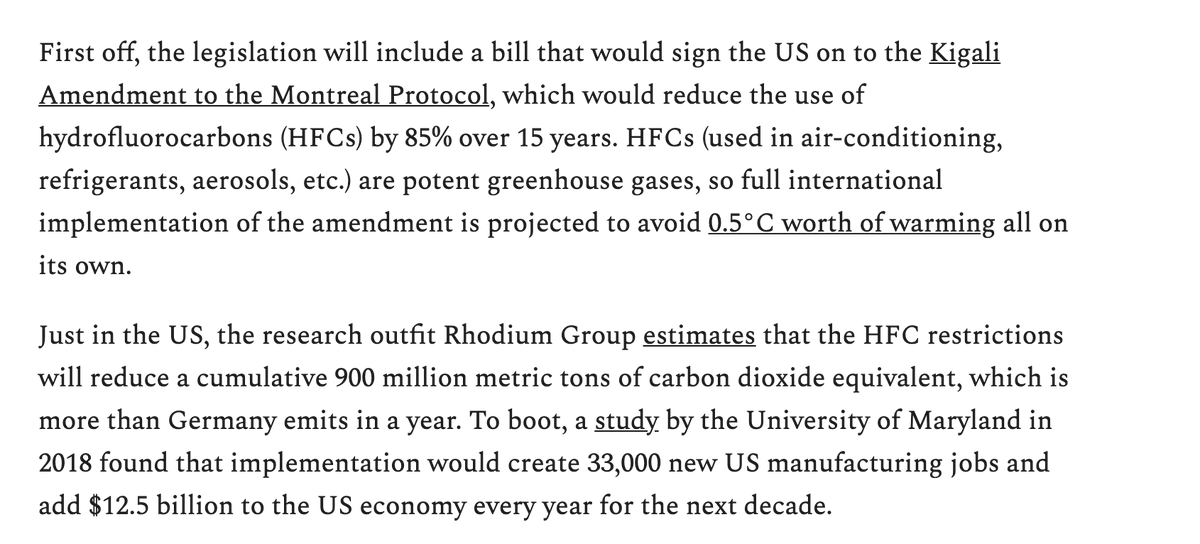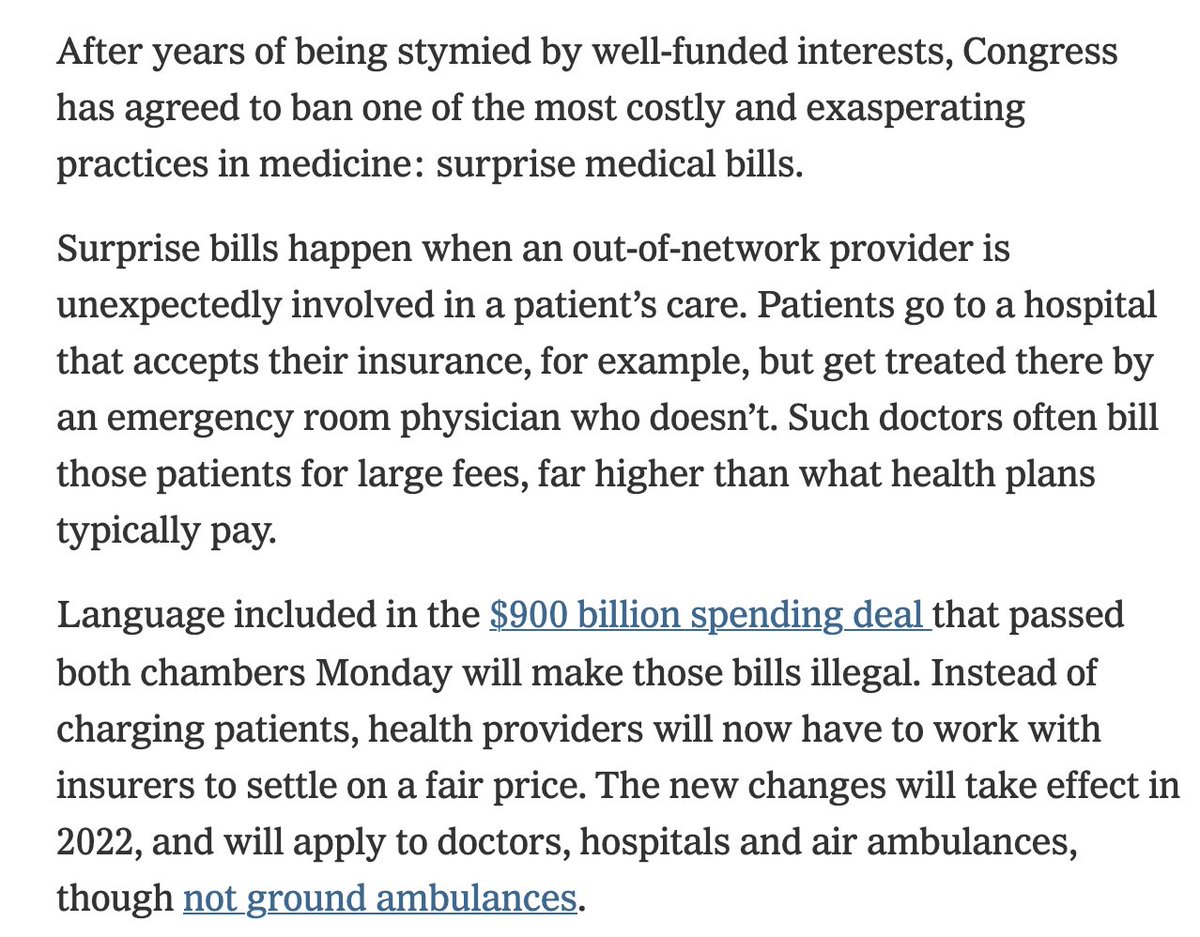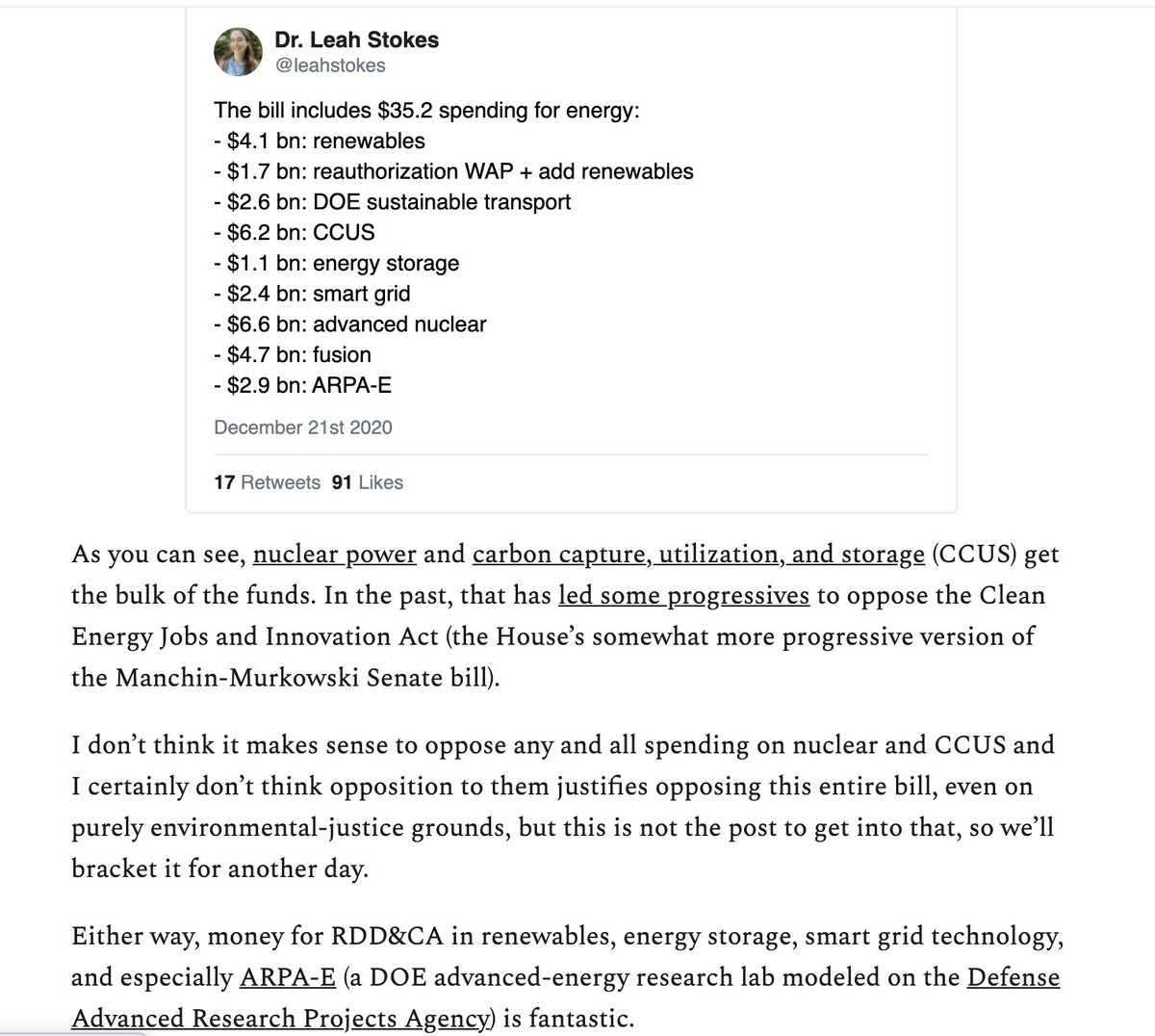There's some surprisingly good stuff in Congress's end-of-year bills that hasn't gotten much attention because it doesn't really fit anyone's narrative https://twitter.com/cjcmichel/status/1345100027266551809
One is the ban on anonymous shell companies @cjcmichel discusses in this great thread and calls "the most sweeping counter-kleptocracy reforms in decades—potentially ever" https://twitter.com/cjcmichel/status/1345095237186809857
The coronabus package also contained "the most substantial energy legislation passed in the US in over a decade" per @drvolts who discusses its provisions, including major restrictions on HFCs, here https://www.volts.wtf/p/congress-might-pass-a-huge-energy
And of course there's the ban on surprise medical bills as @sarahkliff discusses.
https://www.nytimes.com/2020/12/20/upshot/surprise-medical-bills-congress-ban.html
https://www.nytimes.com/2020/12/20/upshot/surprise-medical-bills-congress-ban.html
However strange the process may have been, it certainly cuts against the narrative of Congress being dysfunctional, paralyzed by partisanship, and unable to act. All of this is major policy change that required bipartisan agreement
Now, that bipartisan sign-off of course also means that some these policies might not go as far as progressives want or are paired with stuff they may not love (as @drvolts discusses with regards to the energy material). But it certainly contains stuff they have reason to love
Overall it increasingly seems that we have two separate spheres of politics, one that's about partisan combat and stunts (and gets all the attention), and another focusing on actual governance, taking place behind the scenes (in this case to good effect, but sometimes for ill)

 Read on Twitter
Read on Twitter




